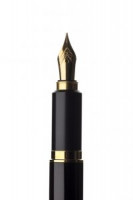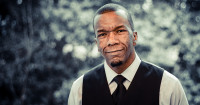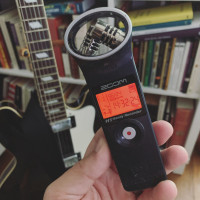
The Art of Accidentally Writing a Thriller
crimereads.com – Tuesday August 9, 2022

Let me start by admitting something that may be a little shameful, a little anathema, on a site like this: I’m not a crime fiction aficionado. Honestly, I read other genres much more extensively. I’ve never read Agatha Christie (gasp!), Lee Child, Gillian Flynn, Harlan Coben, Dean Koontz, James Patterson, John Grisham etc. Sadly, the list goes on. Are you still reading? Am I still invited to this club? Maybe, maybe not.
Let me also say, I fully enjoy the thriller/crime/mystery genre. I love Tana French, Kate Atkinson, and Val McDermid; I especially enjoy thrillers that toe the line between other genres like Julie Phillips’ Disappearing Earth or Jeff Vandermeer’s Annihilation. But I don’t read fiction to watch car chases, solve clues, or guess who dunnit. The truth is, I often don’t really care. Oh man, I AM gonna get kicked out of this club! Let me explain.

Why I Chose Travel Writing As My Retirement Career
travelawaits.com – Monday August 8, 2022

I love to work, explore new possibilities, get out of my comfort zone, live a full and exciting life, and hang out with my husband. I chose travel writing as my retirement career so I could enjoy all those things and live a good life.

Dollars, Cents, and Being Left With the Bill: Jillian Medoff on Breaking Up With Her Literary Agent
lithub.com – Saturday August 6, 2022

In 2008, after 13 years together, my literary agent and I parted ways. (To preserve her anonymity, let’s call her Michael Ovitz.) Between 1995 and 2002, Michael Ovitz sold two of my novels, including my debut, Hunger Point. By any measure, our partnership was a terrific success. Michael Ovitz and I were more than just agent-writer, we were mentor-protégé, friends, confidantes. She invited me to stay in her country home. I corresponded with her daughter. She met my parents. We bought each other gifts. “You’re a part of the family,” she liked to say.
Business isn’t emotional, but people are. This is especially true in the highly subjective book industry, where an author’s imagination, manifested on the page, is the product. Michael Ovitz is an attorney, and the smartest, savviest woman I’d ever met, like Ari Gold from Entourage, but with a maternal affect. Near the end of our first conversation, she asked if I had any questions. I was so wowed I could barely speak. “Who else do you represent?” I blurted out. “Can I see a client list?” (This was before agents posted their client rosters on websites, but Michael Ovitz was way-old-school, anyway. She wouldn’t accept electronic submissions, corresponded only by hand on heavy cardstock, and didn’t adopt email until well into the aughts.) “Oh, Jillian,” she said, chuckling at my farm-girl faux pas. “That’s simply not done. Those names are confidential.”

Writing Insights: Why don't agents tell you why they rejected your book?
authorlink.com – Monday August 1, 2022

Many writers ask why agents don’t give more specific reasons for rejecting a book submission. A standard answer is: “not the right fit,” though a submission is in the same genre they represent.
There can be a number of reasons why a literary agent rejects a work. When an agent says a work is not the right fit for them, it may or may not relate to the writing itself.
The agent could have more submissions than they can handle at the time, or they have just sold a similar title, or they know an editor is looking for a particular story angle, and your submission doesn’t fill that story angle. It could be that the agent doesn’t see the work slotting into a particular category they represent. There are different kinds of thrillers, for example. Maybe the agent knows they can sell psychological suspense but doesn’t know where to go to sell a medical thriller. Maybe the agent doesn’t feel the story targets a large-enough audience or the market is glutted with similar titles. It can also mean the agent simply doesn’t have time to thoroughly read your story, but a quick read tells them it doesn’t fit a need. Or, maybe they are tired and just had a bad day. Agents are human, you know. So, don’t take it personally.

5 Creative Cures for Writer's Block
psychcentral.com – Saturday July 30, 2022

It’s stressful when the words don’t come, when you’re sitting at your desk staring at the blinking cursor or the barren page. Minutes feel like hours. Hours feel like days.
Deadlines loom, and you’re still stuck and staring. A kind of dread begins building in your stomach and travels to your throat, and then peaks between your temples. It’s reminiscent of firecrackers exploding.
“Writer’s block, or any creative block, is really about fear,” according to Miranda Hersey, a writer, editor and creativity coach. The fear of not knowing where to start or we’re headed. The fear that we’re not good enough.
Blocks are tough. They can feel big and intimidating and impossible. But where there’s a block, there’s also a way out. Here are five ways to break through writer’s block.

Meet the People Behind Some of Today's Best Small Publishers Specializing in Crime Fiction
crimereads.com – Tuesday July 26, 2022

Bless the small press! We talk a lot about how to make the big publishers accountable and more diverse, but let’s not forget there is another level of publishing where people have the freedom to follow their taste rather than having to justify each book’s profitability. I think most people in the publishing business feel like they could put together a damned good imprint given world enough and time. I do. So I gathered the founders and publishers of some of crime and crime fiction’s best small presses: Paul Oliver of Syndicate Books, an imprint devoted to bringing forgotten authors back into print; Charles Ardai of noir publisher Hard Case Crime; Sara Gran, whose brand-new imprint is Dreamland Books; Gregory Shepard of reissue enthusiast Stark House; Jason Pinter of Polis Books; and the late but welcome addition of Michael Nava of Amble Press. We talked quality, representation, resurrecting old books and conjuring new ones.

Jason Mott on the Power of Routine, and Tackling Writer’s Block by Writing Badly
lithub.com – Wednesday June 29, 2022

Literary Hub: What time of day do you write?
Jason Mott: I write first thing in the morning. I get up at 5:30 am and head straight to the computer because I’ve found that the best time to write is when the rest of the world is sleeping. There are just fewer distractions and interruptions first thing in the morning.
LH: How do you tackle writer’s block?
JM: I write. I have a theory that writers block isn’t real. In my opinion, writers block is simply the fear of writing bad. So, on those tough days, I just go ahead and write badly. Eventually, my brain always figures out what it wants to say.

How I write: Screenwriter Kathryn Burnett on why a writing career is a marathon not a sprint
stuff.co.nz – Tuesday June 28, 2022

Kathryn Burnett has won the Best Drama Script at the NZTV Awards, for her co-writing of the tele-feature The Tender Trap (TVNZ On Demand). Kathryn is an award-winning professional screenwriter, playwright, public speaker and writing mentor/coach. Her latest play, The Campervan, is being produced by Tadpole Productions in September and will have an all-star New Zealand cast and is set to be directed by industry stalwart Simon Prast.

Clare Pooley on Writerly Perseverance and Knowing When To Give Up
lithub.com – Monday June 27, 2022

“You must never give up on writing itself. But sometimes you need to give up on what you’re writing.”
We’re often told that the key to becoming a published author is perseverance. “A professional writer,” according to Richard Bach, “is an amateur who didn’t quit.”
It takes a certain type of dogged determination—some might call it self-delusion—to get up before dawn for days, months, years on end and drag approximately 90,000 words out of your imagination onto a blank computer screen.
When I sat down to write my second novel, I thought that this time it would be easier. I knew I could do it—my debut, The Authenticity Project, had been a New York Times bestseller—and I already had fabulous publishers, in New York and London, waiting eagerly for the manuscript. No more wild flinging of submissions, with increasing desperation, into the farthest regions of the world wide web for me. Oh no.
The creative muse, it transpires, saves her most hysterical laughter for those of us who think it’s going to be easy.

A solution to writer’s block: Transcribe yourself
austinkleon.com – Friday June 24, 2022

Stewart Brand once said to Brian Eno: “Why don’t you assume you’ve written your book already — and all you have to do now is find it?”
In a similar vein, I enjoyed this story of how KC Davis, author of the brilliantly-titled How To Keep House While Drowning, wrote their book:
I had long stared at blank word documents, unable to get my thoughts on the page. I’m actually not a great writer — but I am a pretty good speaker. So I went back through my social channels and transcribed every short form video I had ever done on this topic and that left me with all these disjointed paragraphs. I spent another two months trying to decide how to connect these little vignettes into a “real” book and finally realized that my choices were to publish an imperfect book or not publish the perfect book. So I decided to make each section its own chapter — some only a page long.
Get the free newsletter | Submit a news item or article | Get Writers' News for your website





